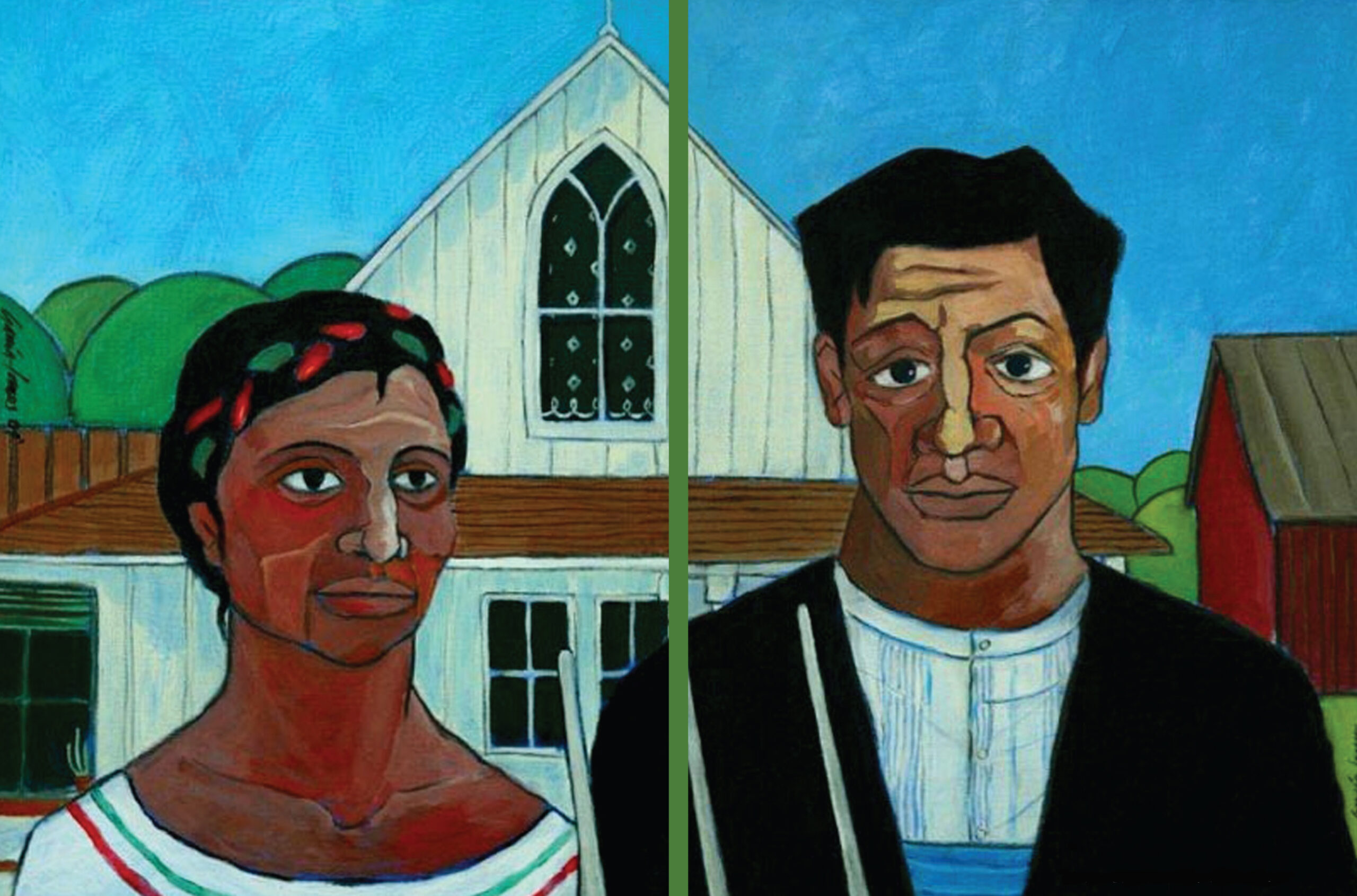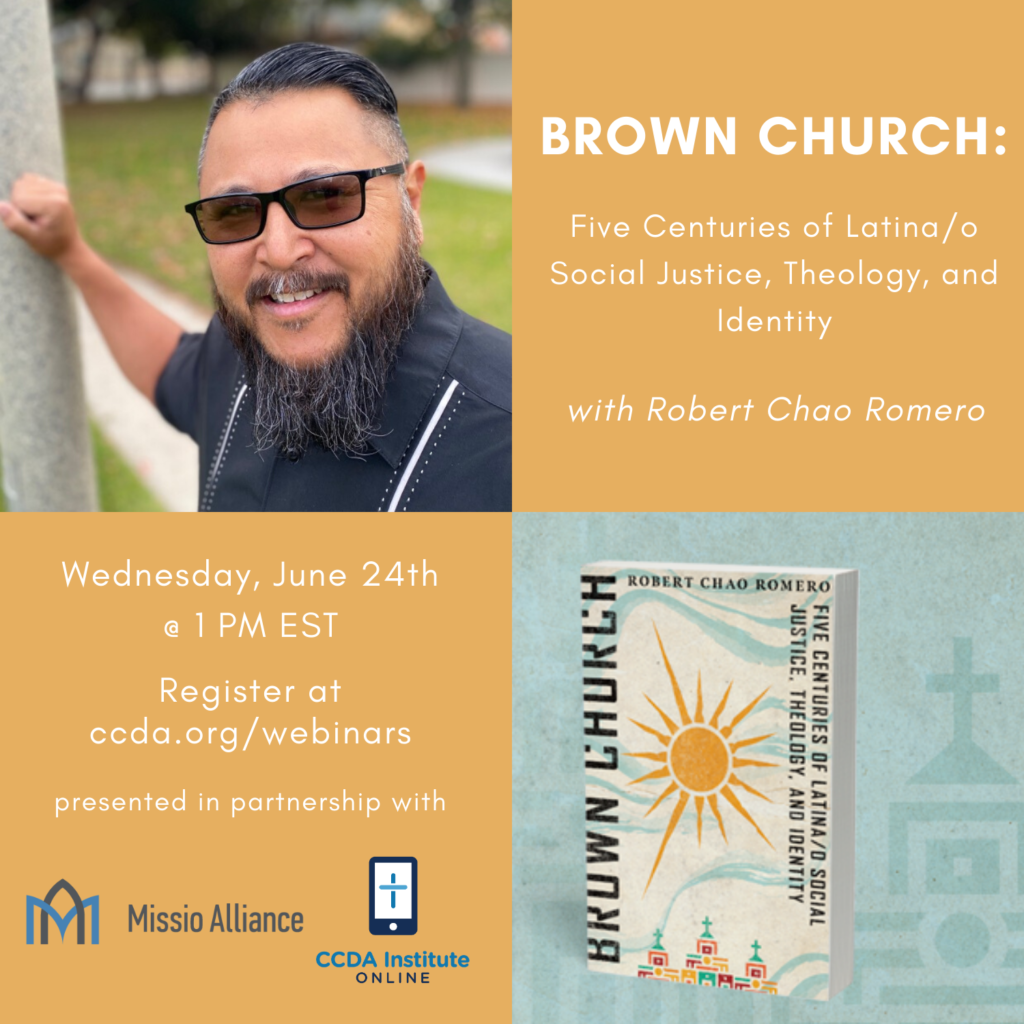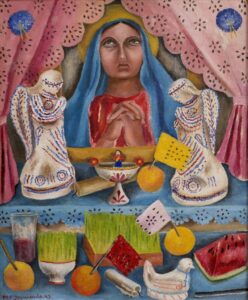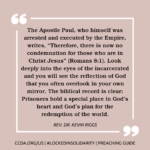By Robert Chao Romero
Rosa was excited about attending her first college lecture. She was valedictorian, the star student of her local CCDA youth development program, and the first of her family to attend college. Rosa’s Mom and Dad were deacons in their local church and had brought her up to be a Christian. They told many stories of how God had taken care of them when they made the dangerous journey to the United States across the Sonoran desert. Her dad worked two jobs—as a short order cook during the week and a gardener during the weekend. He also collected cardboard to raise extra money for the family. Church provided one of the few spaces of social respect for Rosa’s parents. They had “dignidad” when they walked into church and were addressed as “deacons,” and “hermano” and “hermana” Ramos.

Rosa’s first class was a Chicano history class, and her professor began his lecture by saying, “Christianity is the White Man’s religion.” The professor went on to detail how the Spaniards used Christianity to colonize the Aztecs and the millions of indigenous people of the Americas. Rosa also learned about how the Bible was used to justify ethnic genocide, murder, and the oppression of women. The professor also condemned evangelical Christians for continuing to support Donald Trump after he called Latinos “rapists and criminals” and put Latino kids in cages. Rosa left class devastated. She didn’t know what to do. Who was right about Christianity? Was it her working class, immigrant parents who loved and followed Jesus? Was it the urban youth workers who had loved her and discipled her throughout high school? Or was it her professor who had his Ph.D. from Harvard and had written many famous books over the past twenty years?
Brown Church is written for the thousands of Latina/o Christians like Rosa–and myself–who live in the “Christian-social justice borderlands.” In many institutional religious spaces we feel out of place because our concern for social justice issues is not understood. When we share our concerns about issues of educational inequity or police reform we are met with blank stares or even outright opposition. We are told, “those are political issues which are separate from faith.” As a result, we often walk away from church and formal religious institutions. We may cling tenuously to a personal faith, but our activism becomes divorced from institutional Christianity.

In the world of the university and activism our faith is usually discouraged or criticized as well. We are told, “You can’t be a Christian and care about issues of racial and gender justice. It’s the white man’s religion. It’s racist, classist, and sexist.” As a result of such hostility, many Latinas/os keep silent about their faith in activist circles for fear of persecution or ostracization. Others lose their faith. Some tenuously cling to a personal relationship with God but abandon institutionalized Christianity altogether.
I wrote Brown Church so that Rosa and the thousands of Latina/o Christians who live in the Christian-social just borderlands can know that they are not alone, and that they belong. They belong to the “Brown Church”–a prophetic, Jesus-centered community of Latinas/os which has contested racial and social injustice in Latin America and the United States for the past 500 years. In every instance of racial and social injustice in Latin America and the United States over the centuries, the Brown Church has arisen to challenge the religious, socio-economic, and political status quo. The Brown Church has challenged such great evils as the Spanish Conquest, Manifest Destiny and U.S. settler colonialism in the Southwest, Latin American dictatorships, Jim Crow segregation, U.S. imperialism in Central America, the oppression of farmworkers, exploitation and marginalization of undocumented immigrants, and unjust policing.

As a natural outgrowth of its prophetic advocacy efforts, the Brown Church has developed a unique and consistent body of social justice theology based upon the Christian Scriptures. As Latinas/os, we have been reflecting on social justice in the Scriptures for 500 years! I call this “Brown Theology.” Brown Theology rejects the narrow presentation of Christianity as eternal “fire insurance” which leaves most of life untouched by God’s love and redemption. Instead, Brown Theology declares a holistic Gospel which transforms every aspect of our lives and the world, and which pays particular attention to the suffering of the poor. Although God loves all people equally, He also shows unique concern for immigrants, the poor and all who are socially marginalized. In the words of one Brown Theologian: “What human beings reject, God chooses as His very own.”
In this unprecedented historic moment, thousands of Latinas and Latinos are wandering in the “spiritual borderlands” of Christianity and activism, longing for an identity and community which encompasses their love for Jesus, their rich, God-given cultural heritage, and their passion for social justice. To them, the Brown Church says: Welcome home. You belong. #WeAreTheBrownChurch!
The Brown Church welcomes all. Though Brown Church focuses upon the story of Latina/o Christians who have pursued God’s justice, its ultimate goal is God’s Beloved Community of all. Brown Church just offers a different entry point. The cultural and spiritual treasure of the Brown Church is a gift for the whole Body of Christ, and can help inspire new spiritual imagination, and point the way forward for our churches, community development organizations, denominations, and other Christian institutions in this divided moment.
CCDA & Missio Alliance in partnership present, “Brown Church: Five Centuries of Latina/o Social Justice, Theology, and Identity.” Join us to learn more about the history and theology of Latino/a culture and what Robert Chao Romero’s newest book calls “Brown Church.” Romero considers how this movement has responded to these and other injustices throughout its history by appealing to the belief that God’s vision for redemption includes not only heavenly promises, but also the transformation of every aspect of our lives and the world. Lisa Rodriguez-Watson will guide our conversation with Robert Chao Romero about how his Chinese-Mexican experience has impacted his life & faith.
Grab a copy of Brown Church for 30% off and free shipping with code OFFER20S at IVPress!




